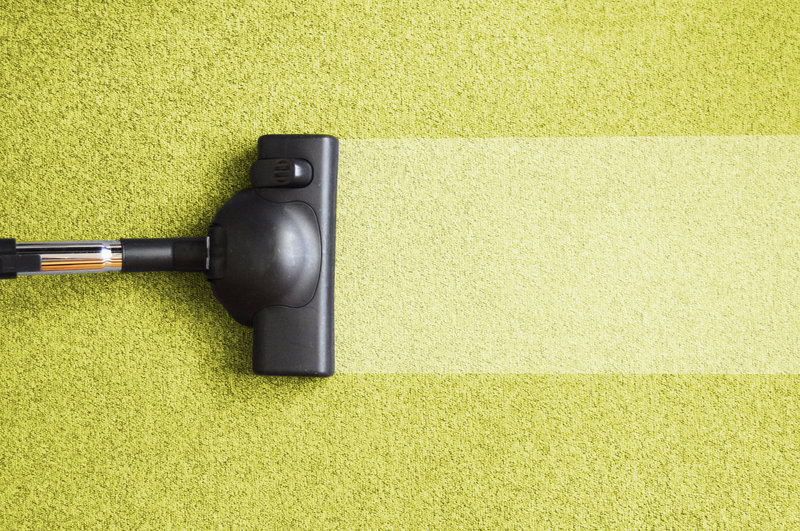Housekeeping, drudgery? Not to us members of the unofficial “clean club.”
You know if you belong: You enthusiastically discuss your favorite cleaning tools, staying loyal to equipment and techniques that have served you well over the years. You understand the difference between a crevice tool and an upholstery nozzle. Vacuuming? You see it as an art.
But what if you don’t love to clean? Well, chances are you still need to suck it up. Here are some tips on methods and machines to help make the chore of vacuuming less of a challenge:
VACUUMING HOW-TO
Kit Selzer, senior editor at Better Homes & Gardens magazine, says you shouldn’t begin cleaning by vacuuming.
“Vacuum after you’ve dusted. Pick up every possible thing from the floor, and move dining chairs and side tables out of the way so you have as much open space as possible,” she says.
Professional house cleaners call this “top down cleaning” — you start at the top of the room, so particulates settle. Tackle ceiling corners, window treatments, furniture and finally the floors.
Selzer also suggests keeping the attachments — crevice tools and small brushes — handy as you get started.
“They’re invaluable for getting dust, dirt and pet hair while you already have the vacuum out. Use the crevice tool in corners and along the baseboards, the upholstery brush on anything made of fabric, and the dusting brush on blinds, books and lampshades,” she advises.
How often should you vacuum? Frequently, especially in high-traffic areas. It keeps dirt from getting ground in and keeps carpet fibers from getting matted. Selzer says vacuuming once a week is good for the average carpet.
Other tips:
• Small rugs act like mini mops, gathering up a lot of debris. Take them outdoors if possible for a good shake before vacuuming. If you can’t do that, vacuum the rug thoroughly on both sides, roll it up and put it aside until the floor’s been dealt with.
• For big rugs, the Dalton, Ga.,-based Carpet and Rug Institute recommends slow, overlapping motions front to back. Start from the center of the rug and move out to the edges to prevent fraying. Don’t go over one spot too many times; make three or four passes. Shaw Floors, makers of carpet, wood, tile and laminate flooring, has advice on its website, www.shawfloors.com: Use a rotating brush or comb beater brush attachment to agitate and loosen deep dirt. But thick wool pile rugs, shags and cabled weaves can get fuzzy or tangled with this brush, so stick to the suction-only attachment for them.
• Change the direction of your vacuum passes frequently.
• For bare floors, use a good, soft brush to protect the floor. Brushes will harden over time so need to be replaced.
• Replace your machine when it no longer sucks like it used to. But make sure it’s not just suffering from a clogged hose, filter or intake. Resist the fun of slurping up coins or small objects, as they can jam up the hose or, worse, the motor.
• Empty the canister or vacuum bag when it’s half- to three-quarters full; don’t wait until it’s stuffed. By then, you haven’t been sucking up anything, just dispersing dirt by moving the vacuum around.
• Got pets? Use crevice tools and upholstery nozzles to remove hair from tiny corners and baseboards as well as furniture. Vacuum throw pillows, mattresses and curtains weekly, to remove pet dander and fur.
CHOOSE YOUR WEAPON
There are two camps when it comes to regular vacuum models: uprights and canisters.
Canister fans tout the tote-ability of a lightweight machine that can be easily carried up stairs and maneuvered from room to room, and has a wand that gets under furniture. Upright lovers prefer to push than pull; these models tend to glide easily across floors and carpeting, and the dirt receptacle generally has a larger capacity than can vacs.
Canister faves include Eureka’s Mighty Mite, Miele’s Olympus and Delphi models, the Bissell Zing and Panasonic’s Opti Flow. Well-rated uprights include the Shark Navigator Elite, the Dyson DC41 Animal, Hoover Wind Tunnel, Miele Cat & Dog and Bissell Clean View.
Oreck’s line of uprights and canisters are lightweight and low-profile, with long-lasting belts and room-friendly bumpers and wheels.
Electrolux’s Precision Brushroll Clean upright has a switch that gathers up tangled hair on the brush and shoots it into the dust compartment — great for families with teenage daughters and golden retrievers. A lightweight, cordless stick vac from Electrolux, designed just for bare floors, comes in color accents that might appeal to college-bound kids.
Dyson’s line is certified by the Asthma and Allergy Foundation of America. Its multi-floor model has a 16-foot cord and a large-capacity dust bin. All of Dyson’s vacuums are bagless. The company recently introduced a cordless machine that’s a kind of hybrid vacuum/Swiffer. The Dyson Hard has a double-edged cleaner head that sucks up dirt, and also has a wet wipe to remove dust and grime in one action.
Many people swear by hand vacuums. Since Black and Decker introduced the Dust Buster in 1979, portable vacuums have been the go-to tool for quick cleaning of cars, baby chairs or little dumps of crumbs. Other handheld machines include the Dirt Devil Extreme Power and the Filter Stream Dirt Tamer — the latter a kind of mini wet-vac; it’ll deal with dry or damp messes.
Roomba is the market leader in robot vacuum cleaners, those little round gadgets that clean on their own and have a rechargeable battery. Their top-end model has not one but two HEPA (high efficiency particulate air) filters. Moneual’s Rydis robot cleaner has a lot of different cleaning modes, and an optional microfiber mop attachment. Neato Robotics’ XV Signature Pro creates a vertical map of the room before it gets to work.
Just like us clean freaks.
Send questions/comments to the editors.




Success. Please wait for the page to reload. If the page does not reload within 5 seconds, please refresh the page.
Enter your email and password to access comments.
Hi, to comment on stories you must . This profile is in addition to your subscription and website login.
Already have a commenting profile? .
Invalid username/password.
Please check your email to confirm and complete your registration.
Only subscribers are eligible to post comments. Please subscribe or login first for digital access. Here’s why.
Use the form below to reset your password. When you've submitted your account email, we will send an email with a reset code.